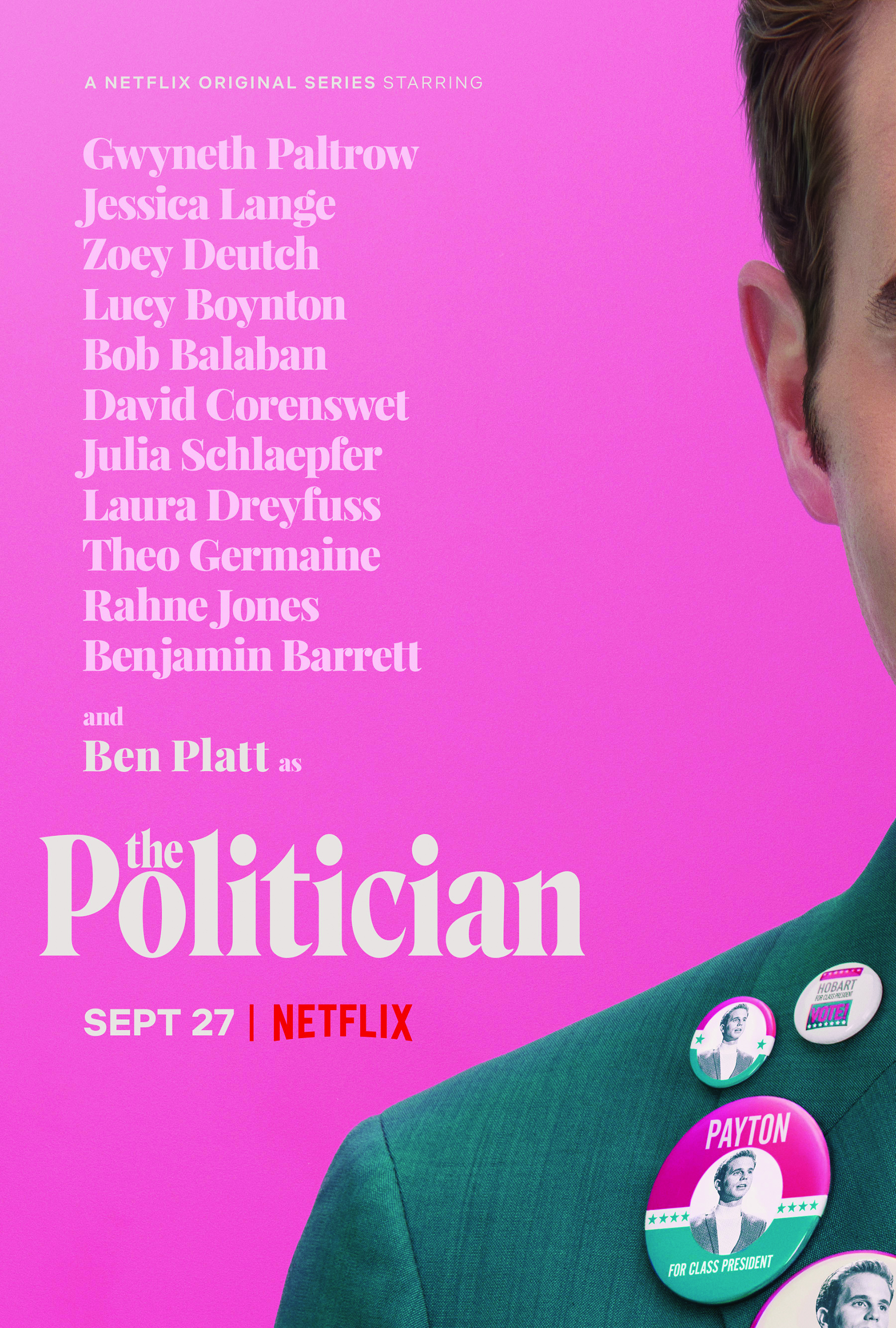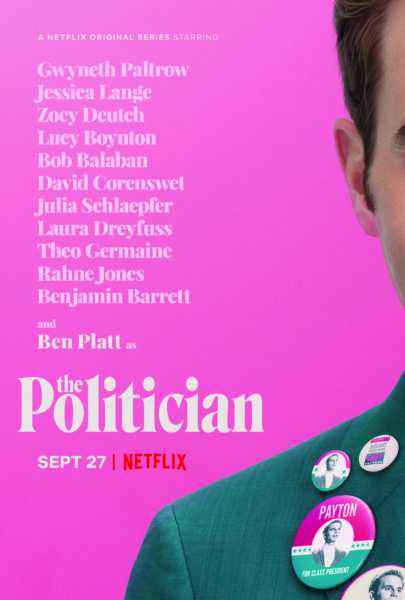

“I am going to be the President of the United States.”
This was the first line spoken in Netflix’s new special series, “The Politician,” which focuses on Payton Hobart (Ben Platt), a high school upperclassman who attends the fictional Saint Sebastian High School in Santa Barbara, California. The first season was released on Sept. 27 and centers around Payton’s campaign for student body president, while future seasons plan to follow him during his other campaigns until he achieves his goal of becoming the President of the United States of America.
As a whole, the show resembles director Ryan Murphy’s past works such as “Glee,” where episodes are packed with intense teenage drama.
The show’s visual elements were consistently stunning; many scenes were filled with beautiful colors used both in sets and wardrobe.
The secondary characters are disappointingly two-dimensional, only given a motive for helping or being against Payton when needed. The other characters have little emotion and purpose and when they are no longer the main focus anymore, they are thrown back to the sidelines and forgotten. The ineffective use of characters causes the audience to learn little about them.
Overall, Murphy fails to create the satirical message he intended to. The show is more of a hollow comedy than a criticism of modern politics. Despite the beginning of the season seeming interesting and promising, the show began to lose its political focus and became an average teen drama with cliche storylines. “The Politician” has a 56% Rotten Tomato score and poor critic reviews.
“The Politician” targets a similar age demographic as Murphy’s past work, but slightly shifts the focus to better fit a society where an increasing amount of teens are more aware and take part in political activism.
“The show is more of a hollow comedy and drama rather than a criticism of modern politics”
The show brought up political ideas and concepts prevalent among American teens today such as gun control and racial equality as part of one candidate’s campaign. It ended with the students abandoning that candidate for another candidate advertising a Drake concert, attempting to make a statement about the complacency of society and the attention span of voters. This single instance, however, would have been more effective if presented throughout the show. For example, one episode focused on the society’s focus on wanting to give people the power to change, and the laxity of society concerning change. This singular episode took the view of an apathetic student voter at Payton’s school who viewed school politics as pointless and refused to vote. Although the episode took a unique and interesting angle, this motif never appeared again and was never elaborated on, leaving it unfinished. Since there is only one season currently released, hopefully future seasons will tie up these loose ends.
Nonetheless, there are aspects of “The Politician” that help provide representation into the film community, most notably for the LGBTQ+ community, which is common within Murphy’s other works. “The Politician,” specifically, addresses the concept of the spectrum of sexuality and endeavors to normalize it. Many characters, including Payton, are hinted at confronting their sexuality. The show attempted to convey that Payton’s love interest had a large impact on him and the representation felt authentic; however, the impact of the relationship on Payton felt superficial.
Rather than focusing only on Payton’s struggles with his sexuality, the show reveals other problems within his life, providing a sense of subtle three-dimensionality. These problems include betrayal by friends and family, inheritance, attempted murder and the struggle to “feel things.” The way some of these other problems were expressed in the show, that Payton had to face had a “first world” factor to them which made it harder to have the sense that Payton was human. This might have been intentional but it becomes unsettling when Payton suddenly displays human characteristics and emotions.
A common motif throughout the first season was the lack of empathy, or “emptiness” that many characters had, which is a comment on the perceived notion that politicians are “cold.” There were multiple opportunities where the show could have hinted at the motif, but instead had the characters say outright that they feel empty. The lack of subtlety involving these types of blatant statement adds to the shallowness of the storyline, which would have been much for effective if articulated more discreetly.
Overall, “The Politician” has a promising plot and potential but still has not yet fully delved into it, leaving audiences wanting a follow up. Hopefully with future seasons, these expectations will be fulfilled.



